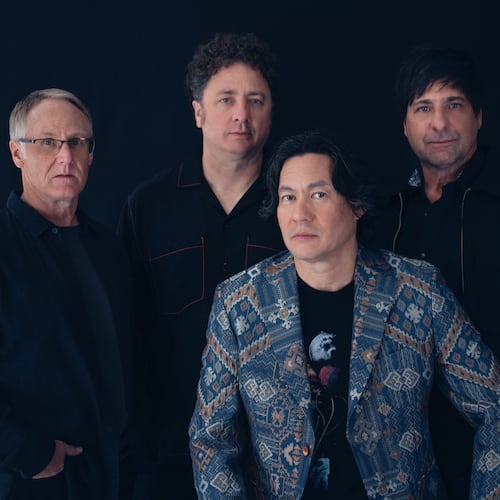ATHENS — When people think about work by Southern women artists, their minds often jump to “genteel flower paintings,” according to Sarah Kate Gillespie, a curator at the Georgia Museum of Art.
That’s not what visitors will find at the Athens museum’s new exhibit, which features 42 Southern women artists from a period spanning the late 1800s to about 1960. The artwork on display ranges from portraits to cubism, from impressionism to sculpture.
Called "Central to Their Lives," the exhibit focuses on the intersection between art, Southern heritage, and womanhood across a range of styles and backgrounds. The exhibition is on loan from the Johnson Collection in Spartanburg, S.C., which regularly sends out exhibitions free of charge.
Lynne Blackman, director of communications for the Johnson Collection, also spent 18 months editing a corresponding anthology of essays, in which 27 scholars look at the exhibit’s artists through the lens of topics like suffragism, race, and the women’s personal stories.
To Blackman, the goal of the 1,200-piece private art collection is to “emphasize the fact that great Southern art is great American art,” she said. “We want to make fine art accessible to everyone.”
Southern women artists faced challenges due to their gender as well as living in the South. They were often distant from urban markets and the celebrated art schools found in the North. Black female artists from the South overcame even more difficulties to be taken seriously and succeed as artists.
>> RELATED: AJC coverage of Women's History Month and more
Despite barriers, the artists featured in the exhibition achieved many firsts. Alma Thomas, who was from Columbus, became the first graduate of Howard University’s fine arts department. She helped found the Barnett Aden Gallery in Washington, D.C., the first interracial art gallery to be privately owned by an African-American, and she was the first African-American woman to have a solo exhibition in a major American museum, the Whitney Museum of American Art in Washington, D.C.
Women pursuing art made sacrifices as well. Kate Freeman Clark of Mississippi signed her work “Freeman Clark” to disguise her gender, and although the artist exhibited her work, her mother banned her from selling her pieces because it was considered unladylike. Another artist, Willie Betty Newman of Tennessee, left her husband and young son to study art in Cincinnati and Paris, risking society’s censure.
The idea to display these women’s stories originated around four years ago, according to Blackman. While the exhibit itself includes 42 artists, the Johnson Collection has developed a catalog including around 2,500 Southern women artists.
“Their stories just haven’t been told. We wanted to put those stories out there,” Blackman said.
The exhibit opened at the end of June at the Georgia Museum of Art, which serves as Georgia's official art museum and is located on the University of Georgia campus.
Gillespie, the in-house curator for the exhibit, said that the Johnson Collection and the museum have a “long-standing partnership” and that Southern women artists were an interest they shared.
Gillespie organized the exhibit both chronologically and thematically in two gallery rooms. This freedom to arrange the artwork how she thought best created “new relationships and new conversations,” Gillespie said.
Several events tied to the exhibit are planned for this summer, including a film series on movies made from books by Southern female authors like Harper Lee and Carson McCullers.
The museum will also host an informal “artful conversation” about one of the artists featured, Theresa Pollak, at 2 p.m. July 18, and there will be days held specifically for families and young children to enjoy the exhibit.
“There’s been a lot of advance anticipation about this show,” Gillespie commented. “People have been quite excited. I think it’ll be very popular.”
>> RELATED: Impact of folk art on the trained artist revealed in show at the High Museum
Gillespie hopes that visitors will see the variety of art that Southern women produced. As she said, it’s not all flower paintings, and these artists tackled every subject and medium in order to show the world through their perspectives.
Both Blackman and Gillespie want the exhibit to draw attention to the excellence and timelessness of Southern art and art by women.
“I feel like the importance of women’s stories is more vital than ever,” Blackman said.
EXHIBIT PREVIEW
“Central to Their Lives: Southern Women Artists in the Johnson Collection”
Through Sept. 23. Free. Open daily except for Mondays. Georgia Museum of Art, 90 Carlton St., Athens. 706-542-4662, georgiamuseum.org.
IN OTHER NEWS:
About the Author
Keep Reading
The Latest
Featured







